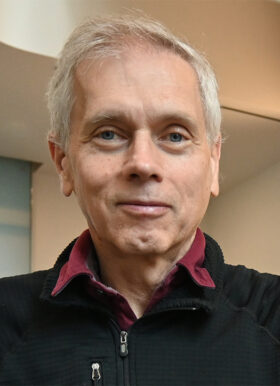
Marco Colonna, MD
Robert Rock Belliveau Professor, Pathology and Immunology
- Phone: 314-362-0367
- Email: mcolonna@nospam.wustl.edu
Division
- Immunobiology
Additional Titles
- Professor of Immunobiology
- Professor of Medicine
Education
- MD, 1983
- Specialization in Internal Medicine, 1988
Research Lab
Office Location
- BJC Institute of Health, 8th Floor, Office 8212
Twitter Handle
Research Interests
Dr. Marco Colonna was born in Parma, Italy, received his medical degree and specialization in internal medicine at Parma University (Parma, Italy) and completed his postdoctoral training at Harvard Medical School (Cambridge, Massachusetts, USA). He became a scientific member of the Basel Institute for Immunology (Basel, Switzerland). Since 2001 he has been a Professor of Pathology & Immunology at Washington University School of Medicine in St. Louis, MO, USA. Since 2019 Dr. Colonna is a member of the National Academy of Science. Dr. Colonna’s research focuses on immunoreceptors. In this field his accomplishments encompass identification and characterization of the Killer cell Ig-like receptors and HLA-C polymorphisms as their inhibitory ligands, as well as the discovery of the LILR and TREM inhibitory and activating receptor families. Through analysis of the cellular distribution of these receptors, he identified plasmacytoid dendritic cells as source of IFN-/ in anti-viral responses and innate lymphoid cells that produce IL-22 in mucosae. His current areas of research include: 1) Innate lymphoid cells in mucosal immunity. 2) Plasmacytoid dendritic cells in host defense and autoimmunity.3) TREM2 and innate immunoreceptors in Alzheimer’s disease and cancer.
Selected Publications
| Brioschi S, Belk JA, Peng V, Molgora M, Rodrigues PF, Nguyen KM, Wang S, Du S, Wang WL, Grajales-Reyes GE, Ponce JM, Yuede CM, Li Q, Baer JM, DeNardo DG, Gilfillan S, Cella M, Satpathy AT, Colonna M. A Cre-deleter specific for embryo-derived brain macrophages reveals distinct features of microglia and border macrophages. Immunity. 2023 May 9;56(5):1027-1045.e8. doi: 10.1016/j.immuni.2023.01.028. Epub 2023 Feb 14. PubMed PMID: 36791722; PubMed Central PMCID: PMC10175109. |
| Russell SK, Harrison JK, Olson BS, Lee HJ, O’Brien VP, Xing X, Livny J, Yu L, Roberson EDO, Bomjan R, Fan C, Sha M, Estfanous S, Amer AO, Colonna M, Stappenbeck TS, Wang T, Hannan TJ, Hultgren SJ. Uropathogenic Escherichia coli infection-induced epithelial trained immunity impacts urinary tract disease outcome. Nat Microbiol. 2023 May;8(5):875-888. doi: 10.1038/s41564-023-01346-6. Epub 2023 Apr 10. PubMed PMID: 37037942; PubMed Central PMCID: PMC10159856. |
| Panda SK, Peng V, Sudan R, Ulezko Antonova A, Di Luccia B, Ohara TE, Fachi JL, Grajales-Reyes GE, Jaeger N, Trsan T, Gilfillan S, Cella M, Colonna M. Repression of the aryl-hydrocarbon receptor prevents oxidative stress and ferroptosis of intestinal intraepithelial lymphocytes. Immunity. 2023 Apr 11;56(4):797-812.e4. doi: 10.1016/j.immuni.2023.01.023. Epub 2023 Feb 16. PubMed PMID: 36801011; PubMed Central PMCID: PMC10101911. |
| Hou J, Zhou Y, Cai Z, Terekhova M, Swain A, Andhey PS, Guimaraes RM, Ulezko Antonova A, Qiu T, Sviben S, Strout G, Fitzpatrick JAJ, Chen Y, Gilfillan S, Kim DH, Van Dyken SJ, Artyomov MN, Colonna M. Transcriptomic atlas and interaction networks of brain cells in mouse CNS demyelination and remyelination. Cell Rep. 2023 Mar 21;42(4):112293. doi: 10.1016/j.celrep.2023.112293. [Epub ahead of print] PubMed PMID: 36952346; NIHMSID:NIHMS1895570. |
| Zhou Y, Tada M, Cai Z, Andhey PS, Swain A, Miller KR, Gilfillan S, Artyomov MN, Takao M, Kakita A, Colonna M. Human early-onset dementia caused by DAP12 deficiency reveals a unique signature of dysregulated microglia. Nat Immunol. 2023 Mar;24(3):545-557. doi: 10.1038/s41590-022-01403-y. Epub 2023 Jan 19. PubMed PMID: 36658241; PubMed Central PMCID: PMC9992145. |
| Hou J, Chen Y, Grajales-Reyes G, Colonna M. TREM2 dependent and independent functions of microglia in Alzheimer’s disease. Mol Neurodegener. 2022 Dec 23;17(1):84. doi: 10.1186/s13024-022-00588-y. Review. PubMed PMID: 36564824; PubMed Central PMCID: PMC9783481. |
| Panda SK, Kim DH, Desai P, Rodrigues PF, Sudan R, Gilfillan S, Cella M, Van Dyken SJ, Colonna M. SLC7A8 is a key amino acids supplier for the metabolic programs that sustain homeostasis and activation of type 2 innate lymphoid cells. Proc Natl Acad Sci U S A. 2022 Nov 16;119(46):e2215528119. doi: 10.1073/pnas.2215528119. Epub 2022 Nov 7. PubMed PMID: 36343258; PubMed Central PMCID: PMC9674248. |
| Peng V, Cao S, Trsan T, Bando JK, Avila-Pacheco J, Cleveland JL, Clish C, Xavier RJ, Colonna M. Ornithine decarboxylase supports ILC3 responses in infectious and autoimmune colitis through positive regulation of IL-22 transcription. Proc Natl Acad Sci U S A. 2022 Nov 8;119(45):e2214900119. doi: 10.1073/pnas.2214900119. Epub 2022 Oct 24. PubMed PMID: 36279426; PubMed Central PMCID: PMC9659397. |
| Wang S, Sudan R, Peng V, Zhou Y, Du S, Yuede CM, Lei T, Hou J, Cai Z, Cella M, Nguyen K, Poliani PL, Beatty WL, Chen Y, Cao S, Lin K, Rodrigues C, Ellebedy AH, Gilfillan S, Brown GD, Holtzman DM, Brioschi S, Colonna M. TREM2 drives microglia response to amyloid-β via SYK-dependent and -independent pathways. Cell. 2022 Oct 27;185(22):4153-4169.e19. doi: 10.1016/j.cell.2022.09.033. PubMed PMID: 36306735; PubMed Central PMCID: PMC9625082. |
| Molgora M, Colonna M. Innate-like T cells: A promising asset in anti-cancer immunity. Cancer Cell. 2022 Jul 11;40(7):714-716. doi: 10.1016/j.ccell.2022.05.017. Epub 2022 Jun 16. PubMed PMID: 35714605; PubMed Central PMCID: PMC9359000. |
Assistant
Teresa A. Page
Administrative Professional
Washington University School of Medicine
Clinical Science Research Building, 7th Floor, Room 7701A, Campus Box 8118
Tel: 314-747-4237
paget@wustl.edu